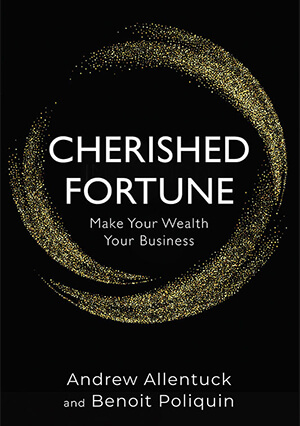Thanks to Tony Robbins, I was the guy in art school always trying to tax deduct my beer. If you remember, he exploded onto the late-night infomercial scene in the early 90s with expressions like, “You’re not lazy. You just have impotent goals!” and “Success leaves Clues.” In my experience people either love him or hate him and even though I take him with a grain of salt sometimes, he built on the deep and soulful conversations we learned to have from Oprah, (see last week’s blog) and brought us the science of meaningful personal achievement.
When I started in the money business we sat through a two-week classroom training on the technical specifics of RRSPs and LIRAs. We received the basics of tax-planning and investing. The trainers also gave us detailed instruction in an 11-step process called “The Business Discipline,” a sales and relationship model clearly designed by a highly procedural person who had likely never sold anything to anyone.
Step 3.1.4(par. 2) of the Business Discipline was a description of how to talk to people about their retirement goals. It didn’t even cover the basics of psychological motivation, forget the science of achievement. Bureaucrats should not design these things.
Step 3.1.4(2) stipulated that we provide our potential client with a pen and generic checklist called “Goals and Priorities,” and wait silently while they ticked their boxes. It seemed crazy to me.
Psycho Logic.
Psychology is exploration of the nature of the soul. It sounds ephemeral and pseudo-religious, but Psyche is the Greek word for Soul, and Logos can be understood as, “The language of.” If you study modern psychology, most of it is not bordering on the religious, but the pioneers in the field like William James and Carl Jung, who moved in the liminal spaces between science and mysticism, aspired to understanding The Self in sacred terms. People like Mihaly Csikszentmihalyi (University of Chicago), a pioneer in the science of happiness, and Robert Kegan (Harvard), whose research shows that we continue to go through stages of psychological development well into adulthood, sought to understand what lights us up, what motivates us, what our personality types are, what stages of development we go through and what shadows lurk beneath the surface preventing us from figuring out who we really are.
Among my deepest values are learning, and curiosity and I read all these thinkers before I became a financial planner. I found the Business Discipline and the “Goals and Priorities” portion of our training to be superficial, patronizing and perfunctory. More rote than ritual.
Do you want to Travel more?
Take up Golf or a hobby?
Buy a cottage?
Winter in the south?
Other…
If you want a professional ally with a vocabulary around money, who can help you create the life you want, you will not find that ally in someone who hands you a generic checklist for you to tick off your life goals.
Here are four constructive ways to think about the “goals” question that I’ve learned. It’s not an exhaustive list. As I invite you to explore these questions, I refer again to Tony Robbins’ idea that “Success Leaves Clues.” You may want to share and discuss these questions with your partner or expand on them in a journal or mind-map, or you may allow yourself some space in reflection to think on them and allow them to percolate over a few days. If I were to channel the guru of goals, I’d also say that the more energy you put into something this, the more you’ll get out of it.
- What are the five most important things to you in your life? These are your values. If you are unsure about this, consider how you spend your time. If you say fitness is a value, but don’t have a fitness routine, its not a value. If you say travel and leisure is important but you haven’t taken a vacation in five years, probably your career or your business is the higher value.
- Where do you find meaning in your life? Do you have a personal practice in which you engage in something that is sacred to you? When is the last time you felt a sense of awe and wonder? What fills your heart with joy? Do you find this meaning in religious devotion, spiritual practice or staring gob-smacked at the Milky-Way on a cloudless, moonless night?
- What activities put you into The Zone where you’re totally immersed in the experience or you’re feeling a sense of purpose and connection? When are you so engrossed in something that you lose all sense of time? What are you doing when that happens?
- How do you know when you’ve had a great day? I mean, at the end of the day, when you’re winding down or having dinner, or spending time with your spouse and partner or your kids or walking the dog, what kind of day do you have to have done, felt or experienced for you to say to yourself, “Wow! That was an amazing day?”
Success leaves clues.
I am going to suggest, if you have read my blog on retirement personality types, that the language you use to describe these things is going to be unique to you. For some people, the completion of a project ahead of schedule, and hitting a target in a competitive arena is going to light it up. For others, it could the feeling contribution and significance that comes from helping others. For others it will be engaging in an activity that takes us into the trance-like state that some people call the runners rush or flow state. And still for others this will be the feeling we get from creativity, innovation and solving complex problems.
Exploring questions like this reveals and reminds us of proven, meaningful successes. It reminds us of what makes us happy and fulfilled. And if we know what makes us happy and fulfilled, we can orient our lives around deliberately creating circumstances that allow us to experience more and more of it.
If you’d like to explore this question and learn how to integrate your finances into the things that are most meaningful to you, and create a more fulfilling future, I invite you to reach out.
I’ve learned that these conversations are significant parts of my own most fulfilling and most amazing days; and if we have beer and talk business, our beverages are tax deductible. As it turns out, I’m much better at tax-deducting than making art.






